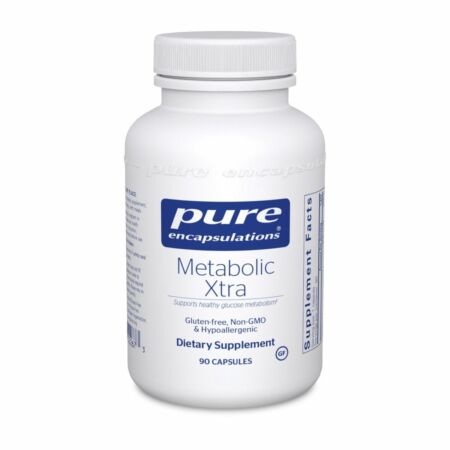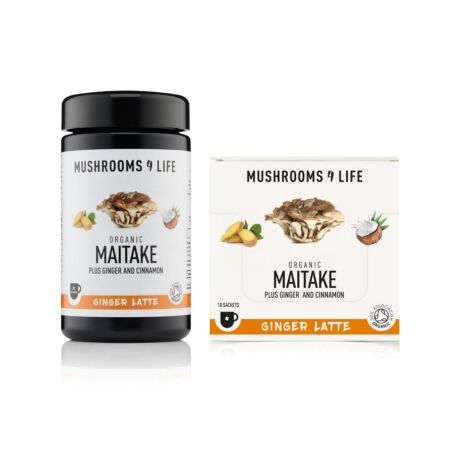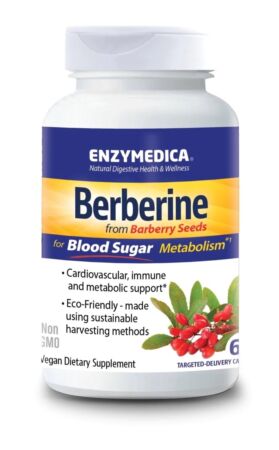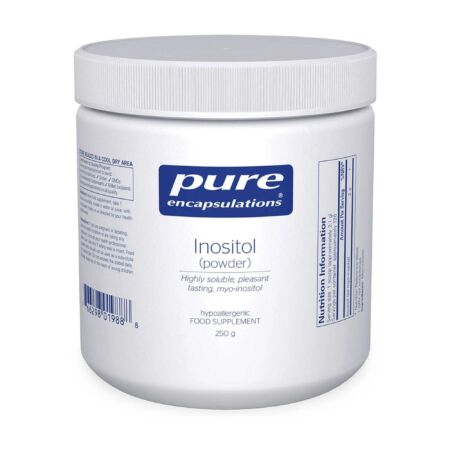Managing diabetes involves a combination of medical care and naturopathic options such as diet, lifestyle changes, and supplements. We discuss certain supplements that have been studied for their potential benefits in managing diabetes.
What is diabetes?
Diabetes mellitus is a metabolic disorder whereby there tends to be elevated blood sugar levels. This occurs when your body either does not produce enough insulin or is unable to use it effectively. Insulin is responsible for transporting sugar from the bloodstream into your cells where it is either stored or used for energy. When this process is not functioning well, it can lead to the development of diabetes[i].
If left untreated, high blood sugar levels associated with diabetes can cause damage to various organs such as the nerves, eyes, and kidneys. However, with proper education and management techniques, people with diabetes or prediabetes can take steps to prevent or manage diabetes for their health[ii].
Diabetes can be classified into several types - including:
Type 1: This type of diabetes is an autoimmune disease in which the immune system attacks and destroys cells in the pancreas that produce insulin. The exact cause of this attack is debated by researchers. Scientists think type 1 diabetes may occur due to genetic and environmental factors, such as viruses, that may trigger the disease.
Type 2: Type 2 diabetes occurs when the body becomes resistant to insulin, resulting in the accumulation of sugar in the blood. It is the most common type and affects approximately 90% to 95% of people with diabetes[iv].
Gestational: Gestational diabetes is high blood sugar that develops during pregnancy, caused by insulin-blocking hormones produced by the placenta.
Diabetes insipidus: Unlike diabetes mellitus, diabetes insipidus is a rare condition that affects the kidneys, causing excessive fluid loss from the body[iii].
Prediabetes
Prediabetes is a condition known to be apparent when there are higher than normal blood sugar levels (that do not meet the diagnostic criteria for Type 2 diabetes). It occurs when the body cells do not respond to insulin in the way they should, which can increase the risk of developing Type 2 diabetes in the future. It is possible for prediabetes and type 2 diabetes to be reversed, with proper lifestyle adjustments, healthcare, and holistic practices.
Symptoms of diabetes
Symptoms of diabetes arise due to elevated blood sugar levels. While the symptoms of Type 1 and Type 2 are similar, they tend to occur more rapidly in Type 1 than in Type 2, where the onset is slower. Nerve tingling and slow-healing sores are more commonly associated with Type 2 diabetes. If left untreated, Type 1 diabetes, may lead to a life-threatening condition called ‘diabetic ketoacidosis’. Although Type 1 is less common in other types of diabetes, it is still possible to develop.
Common symptoms of diabetes include increased hunger and thirst, frequent urination, blurry vision, extreme fatigue, weight loss, and sores that don't heal. Men with diabetes may experience a decreased sex drive, erectile dysfunction, and poor muscle strength, whilst women may experience vaginal dryness, urinary tract and yeast infections, and dry, itchy skin.
Diabetes from a naturopathic perspective
Naturopathic practitioners approach diabetes as a complex condition that requires a comprehensive, holistic approach to treatment. They aim to identify and address the underlying causes of the disease, which can involve a combination of dietary and lifestyle modifications, as well as the use of natural supplements and herbs.
A key aspect of naturopathic treatment for diabetes is dietary changes that involve reducing intake of processed foods, refined sugars, and carbohydrates that cause blood sugar spikes. Naturopathic practitioners may also recommend increasing intake of whole foods, fibre-rich foods, and healthy fats to support optimal blood sugar regulation.
In addition to dietary changes, naturopathic practitioners may recommend lifestyle modifications, such as regular exercise, stress management techniques, and adequate sleep, to improve insulin sensitivity and overall health[v][vi].
In conjunction with dietary advice, naturopathic practitioners may also suggest natural supplements and herbs to support blood sugar regulation, such as chromium, magnesium, alpha-lipoic acid, and cinnamon. These supplements may help improve insulin sensitivity and reduce inflammation, which can contribute to the development of diabetes.
Overall, naturopathic treatment for diabetes focuses on addressing the underlying causes of the disease and promoting overall health and wellness through natural, holistic approaches.
A focus on diet for diabetes:
A naturopathic diet for diabetes typically focuses on whole, nutrient-dense foods that are low in sugar and refined carbohydrates. Studies have shown that a diet rich in fruits, vegetables, whole grains, lean protein, and healthy fats can improve blood sugar control and reduce the risk of diabetes-related complications. A study published in the journal Nutrients in 2017 found that a diet high in fibre and low in added sugars was associated with improved insulin sensitivity in overweight and obese adults. Introducing more plant-based protein can be effective in controlling diabetes, nuts in particular, are a great source of protein and micronutrients[vii][viii].
Therefore, incorporating a naturopathic diet, along with other lifestyle interventions such as regular exercise and stress management techniques, can be an effective way to improve insulin sensitivity and overall health in people with diabetes[ix].
Recommended supplements for diabetes:
Viridian Chromium & Cinnamon Complex - Chromium is an important mineral that contributes to the maintenance of normal blood glucose levels. Cinnamon, also known as “sweet wood,” has been well studied clinically and has a long history of traditional use[x].
Mushrooms 4 Life Organic Maitake Ginger Latte - Traditional Chinese Medicine (TCM) Maitake is reputed to tonify the kidneys and liver, drain excess damp and calm the mind[xi][xii].
Pure Encapsulations Inositol Powder - Inositol Powder features myo-inositol, the primary form of inositol used in clinical research[xiii].
Pure Encapsulations Metabolic Xtra – This complex may support healthy insulin receptor function and signalling, which support healthy glucose metabolism. It contains chromium and cinnamon, as discussed previously, as well as green tea extract (a source of antioxidants that may support metabolic health and weight management), and Alpha lipoic acid: an antioxidant that may support healthy insulin sensitivity and glucose uptake in cells[xiv][xv].
Viridian Nac+ - NAC+ Veg Caps from Viridian Nutrition offers a combination of NAC (N-acetyl cysteine), Chromium, L-Glutamine and Cinnamon. The accessory elements in this formula - Chromium, L-Glutamine and Cinnamon - offer supportive actions to NAC[xvi][xvii].
Enzymedica Berberine - Common uses include boosting blood sugar metabolism and promoting weight loss[xviii].
Viridian Pine Bark Extract Veg Caps Organic – Pine bark extract is derived from the bark of the maritime pine tree (Pinus pinaster) and is rich in antioxidants known as proanthocyanidins. Some preliminary studies have suggested that pine bark extract may have a beneficial effect on blood sugar control in people with diabetes[xix].
Functional testing for diabetes
Adrenal Stress Index - Chronic stress can increase blood sugar levels and make it more difficult to manage diabetes. In addition, stress can also have a negative impact on overall health and wellbeing[xx]. It's important to note that stress is just one of many factors that can affect blood sugar levels, and that people with diabetes should seek to develop a comprehensive treatment plan that may include lifestyle interventions, medication, and other therapies where appropriate.
Other testing options for diabetes include:
Oral glucose tolerance test (OGTT): This test involves drinking a solution containing a measured amount of glucose, and then measuring blood sugar levels at regular intervals over the next few hours. The test is used to diagnose diabetes and to monitor blood sugar control in people with known diabetes.
Fasting plasma glucose (FPG) test: This test measures blood sugar levels after a period of fasting, typically overnight. It is used to diagnose diabetes and to monitor blood sugar control in people with known diabetes.
Haemoglobin A1c (HbA1c) test: This test measures the percentage of haemoglobin that is coated with sugar (glycated haemoglobin). It provides an average measure of blood sugar control over the past 2-3 months, and is used to diagnose diabetes and to monitor blood sugar control in people with known diabetes.
Insulin tolerance test (ITT): This test involves injecting the person with insulin and then measuring blood sugar levels at regular intervals over the next few hours. It is used to diagnose insulin resistance and to evaluate the function of the pancreatic beta cells, which produce insulin.











